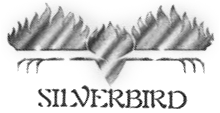Telecomsoft
Telecomsoft was a British video game publisher and a division of British Telecom. The company was founded by Dr. Ederyn Williams in 1984 and operated three separate labels: Firebird, Rainbird, and Silverbird.
| Division | |
| Industry | Video games |
| Fate | Merged out |
| Founded | 1984 |
| Founder | Dr. Ederyn Williams |
| Defunct | May 9, 1989 |
| Headquarters | , England |
| Brands |
|
| Parent |
|
History
Telecomsoft was founded in 1984 when computer games were the fastest growing sector within the computer software market at the time.
Three publishing labels were initially established within Telecomsoft, each with its own marketing strategy, although some of them would later fragment to form a number of sub-labels. The Firebird label would be Telecomsoft's primary identity. Although initially set up to publish a range of budget titles, Firebird later evolved into a full price label. As a consequence the Silverbird label was formed to continue publishing the budget range. As the Atari ST and Amiga home computers grew in popularity, the Rainbird label was established to give the more complex 16-bit titles a unique brand identity, although it was also used to publish a number of high-profile 8-bit games and application software. In 1985 Telecomsoft opened the US operation which published product under licence on IBM PC. Apple II and IIe, C64 as well as Atari and Amiga titles. The US operation published the first UK product 'Elite' to the No1 spot on the Billboard charts in May 1986.
Telecomsoft was viable for only a short period of time and was acquired by MicroProse in 1989.[1] The US-based publisher sold the Silverbird label soon after acquisition, but continued to use the Rainbird and Firebird labels for a short period.
Labels
Firebird

Firebird was the first computer game label to be set up at Telecomsoft. It had earlier been named Firefly Software, but was then renamed because the original name was not fully protected.
Initially there were two prices: Firebird Silver would release budget titles priced at £2.50 whereas Firebird Gold would release more prestigious titles at £5.95.[2] The Firebird label was aimed at a teenage market, hoping to entice young spenders to spend their pocket money on good quality, low-priced games rather than records and comics.
Although there were doubts as to whether or not the market could afford to sustain a range of budget titles, the Firebird Silver releases were successful. The budget software market grew as other publishers, such as Codemasters, decided to capitalise on the successful model established by Firebird and their early rival Mastertronic.
Firebird Gold established itself just as well as its budget counterpart. Although the price rose to £9.95, the label became synonymous with many classic 8-bit titles, such as Elite, Revs, Druid and The Sentinel.
Firebird's success allowed them to acquire a number of third party developers, see Telecomsoft acquisitions below, and they also established a deal with Ultimate Play the Game, whereby they would convert and publish a number of their successful ZX Spectrum games to the Commodore 64.
Later, the entire budget range was given an overhaul and relaunched as the single Firebird Silver £1.99 Range. Likewise, a new Firebird Hot label was established to reintroduce mid-price games. A final overhaul of the Firebird brand was conducted in late 1987 as the budget titles became rebranded as Silverbird and the mid to full-price games as Firebird. These brands remained until MicroProse's acquisition of Telecomsoft in 1989.
Silverbird

Rather than attempt to juggle a number of potentially confusing budget labels with the same branding as their full price software, Telecomsoft decided to consolidate and rebrand their budget labels as a single Silverbird range. Two price points were established for 8-bit software (£1.99 and £2.99) while a few budget 16-bit titles were priced at £9.99. These various price points were differentiated between by their own particular style of packaging.[3]
Rather than simply republish their existing range of budget software, Silverbird published a range of titles that hadn't previously been released at a budget price point. This included many original new titles as well older full-price titles acquired from other publishers.
Following MicroProse's acquisition of Telecomsoft, the US publisher sold off the Silverbird label to a Tudor Enterprises, a British publisher. They published a compilation pack of old Silverbird titles and a small number of original titles before closing down their software publishing operations.
Rainbird

The Rainbird label was established by Tony Rainbird, a former Micro-Gold employee who joined Telecomsoft to help set up the Firebird label. For legal reasons, the label's original name, Bluebird, had to be changed, although it still retained Tony Rainbird's original idea of releasing all its games in striking blue packaging.
The 16-bit home computer market, largely represented by the Atari ST and Amiga, was just beginning to take off in 1986 and the Rainbird label was an ideal opportunity to capitalise on it. Rather than concentrate on the more simplistic arcade action games that had dominated the 8-bit era, Rainbird aimed to introduce cutting edge simulators, adventure games and utilities to the full-price market.[4]
Rainbird formed partnerships with a number of developers who would produce their next range of games. Magnetic Scrolls and Argonaut Software were amongst the first developers to benefit from a publishing deal with the label. Realtime Games, a successful ZX Spectrum developer who specialised in fast 3D action games, converted Starglider to the ZX Spectrum and developed Carrier Command for Rainbird.
The company republished enhanced versions of adventure games by Level 9 Computing, beginning with their Middle-earth trilogy: Colossal Adventure (itself an enhanced conversion of Adventure by Will Crowther and Don Woods), Adventure Quest and Dungeon Adventure, these last two featuring the Demon Lord Agaliarept. Rainbird published this sequence as Jewels of Darkness[5] and references to Middle-earth were expunged. Rainbird also published Level 9's Silicon Dreams trilogy: Snowball was followed by Return to Eden and The Worm in Paradise.
MicroProse continued to use the Rainbird label for a number of years, after its acquisition of Telecomsoft.
Acquisitions
Beyond Software
One of Telecomsoft's earliest acquisitions was Beyond Software. Originally set up by the EMAP publishing group in 1983, Beyond published numerous titles on the ZX Spectrum, Commodore 64 and Amstrad CPC, but met with very little success until the release of Mike Singleton's Lords of Midnight in 1984. The Tolkien-esque strategy game, and allowed Beyond to establish a distribution deal with American developers First Star, as well as a publishing deal with developer Denton Designs.
After being acquired by Telecomsoft in late 1985[6] for a six figure sum, Beyond continued to operate as a unique label, mostly releasing games that had already been in development for some time, as well as a number of conversions of existing titles. Telecomsoft did very little with the Beyond label beyond these releases. A number of other titles, such as Star Trek: The Rebel Universe, were released on the Firebird label.
Odin Computer Graphics
References
- Fisher, Andrew (December 2013). "The Commodore 64 Games that Time Forgot". Retro Gamer (122). Imagine Publishing. p. 55.
- "Archived copy". Archived from the original on 2009-04-19. Retrieved 2009-10-01.CS1 maint: archived copy as title (link)
- http://birdsanctuary.co.uk/history-silverbird-software/
- http://birdsanctuary.co.uk/history-rainbird-software/
- http://www.crashonline.org.uk/36/jewels.htm
- Richard Hewison: Beyond. Archived 2011-05-25 at the Wayback Machine from: The Bird Sanctuary. Accessed on 2009-12-10
